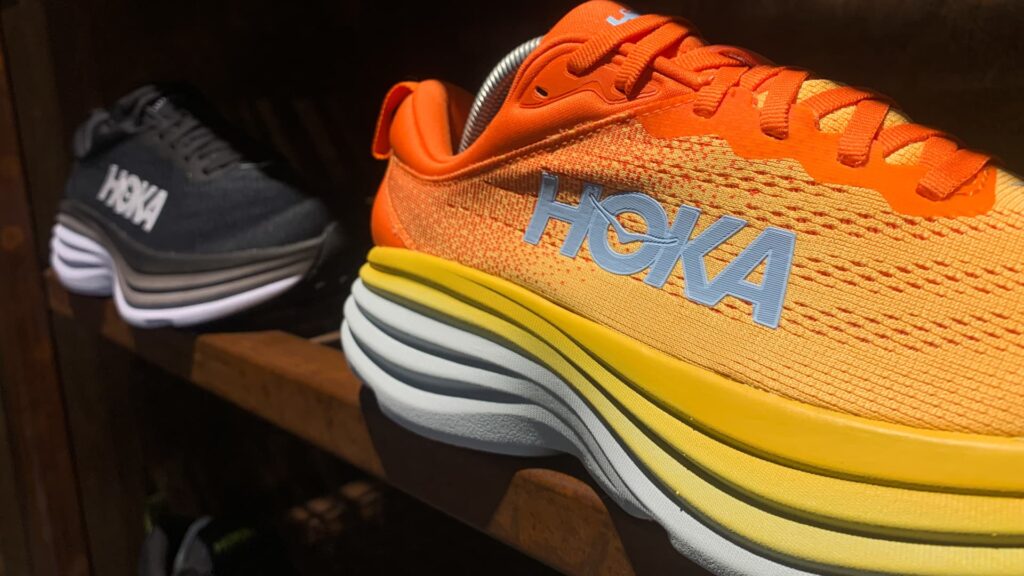Footwear manufacturer Deckers Brands has recently experienced a significant decline in its stock price, dropping 15% after announcing a reduction in sales expectations for its key brands, Hoka and Ugg. This unexpected shift comes amid rising concerns regarding inflation and tariffs, which appear to be impacting consumer demand. In response to analysts and shareholders, company executives provided insights into the current challenges facing these popular brands and the broader implications for Deckers’ financial outlook.
| Article Subheadings |
|---|
| 1) Recent Stock Declines and Revenue Guidance |
| 2) The Impact of Tariffs on Consumer Demand |
| 3) Insights from Company Executives |
| 4) Broader Financial Expectations for Deckers |
| 5) Outlook Ahead for Hoka and Ugg Brands |
Recent Stock Declines and Revenue Guidance
Deckers Brands, known for its popular Hoka and Ugg footwear lines, faced a significant stock market blow, with shares plunging 15% following the announcement of adjusted revenue forecasts. The company’s latest guidance pointed to a slower growth trajectory for Hoka, with expected growth now reduced to a low-teens percentage for fiscal 2026, a stark contrast to the previous year’s robust 24% increase. Ugg, another key brand within Deckers, is now anticipated to see growth of only low to mid-single digits, compared to 13% in the past year. Financial experts note that this adjustment raises alarms about the sustainability of these brands’ rapid expansion.
The Impact of Tariffs on Consumer Demand
The recent predictions concerning Hoka and Ugg sales were notably influenced by concerns over tariffs and their subsequent effects on consumer behavior. Deckers’ management acknowledged that the initial growth forecasts provided earlier in the fiscal year did not fully account for the implications of President Trump’s tariffs on imported goods. During a conference call, Chief Financial Officer, Steven Fasching, emphasized that while their previous growth framework took into consideration pricing without anticipated tariff impacts, the reality is that these tariffs are now affecting the purchase patterns of American consumers. This has led to a cautious approach on the part of consumers, particularly in the discretionary spending category.
Insights from Company Executives
Amidst the turmoil, Dave Powers, CEO of Deckers, sought to reassure investors about the long-term prospects for Hoka and Ugg. While acknowledging current challenges, he asserted that both brands maintain a strong connection with their core audience. Powers conveyed optimism about the company’s product portfolio, insisting that both Hoka and Ugg are still leaders in brand traction and market share. Although noting the near-term pressures of inflation and tariff-induced costs, he diplomatically indicated that these factors do not diminish the brands’ underlying strength.
Broader Financial Expectations for Deckers
Looking beyond the immediate impact of rising costs, Deckers has provided a comprehensive outlook for its fiscal year. The company forecasted a full-year revenue of approximately $5.35 billion for 2026. This figure is below analysts’ expectations, which had anticipated revenues closer to $5.45 billion. Additionally, projected earnings per share are estimated to be between $6.30 and $6.39, aligning roughly with the consensus of $6.32 per share estimates. In terms of tariffs, executives warned that the impact this fiscal year could reach as high as $150 million. To mitigate these excessive costs, Deckers plans to implement price adjustments and collaborate with manufacturing partners to share the burden.
Outlook Ahead for Hoka and Ugg Brands
Despite the current forecast adjustments, both Hoka and Ugg are critical components of Deckers’ revenue, accounting for a substantial portion of the company’s overall sales. After experiencing rampant growth over the past few years, there are concerns that these brands may be losing momentum. Year to date, Deckers’ stock has dipped over 55%, causing unease among investors regarding the company’s ability to sustain demand. However, executives maintain a cautious yet positive outlook for the future, suggesting that with appropriate adjustments and strategies, they are poised to navigate through these turbulent economic conditions.
| No. | Key Points |
|---|---|
| 1 | Deckers Brands shares fell 15% following lowered sales forecasts for Hoka and Ugg. |
| 2 | Hoka is expected to grow in the low teens, while Ugg’s growth may remain in the low to mid single digits. |
| 3 | Tariffs and rising costs have begun impacting consumer purchasing behaviors. |
| 4 | Deckers plans to offset tariff costs through price increases and partnerships with factories. |
| 5 | The long-term outlook for Hoka and Ugg remains optimistic despite recent challenges. |
Summary
In summary, the recent stock decline of Deckers Brands underscores a crucial juncture for the company’s future, particularly for its flagship brands Hoka and Ugg. The reverberating effects of tariffs and inflation highlight significant challenges ahead in the consumer goods sector. However, the company’s management has expressed commitment to navigating these challenges, emphasizing the enduring strength of its brands among consumers. Stakeholders will undoubtedly be watching closely as these dynamics unfold in the coming months.
Frequently Asked Questions
Question: What are the main brands under Deckers Brands?
The primary brands under Deckers Brands are Hoka and Ugg, both of which have significantly contributed to the company’s revenue growth.
Question: How have tariffs affected Deckers Brands?
Tariffs have been known to inflate costs for Deckers, impacting consumer purchasing behaviors and leading to lower sales forecasts for its key brands.
Question: What is the outlook for Hoka’s growth?
Hoka’s growth is now expected to be in the low-teens percentage range for fiscal 2026, which represents a decline from its previous significant growth of 24%.
